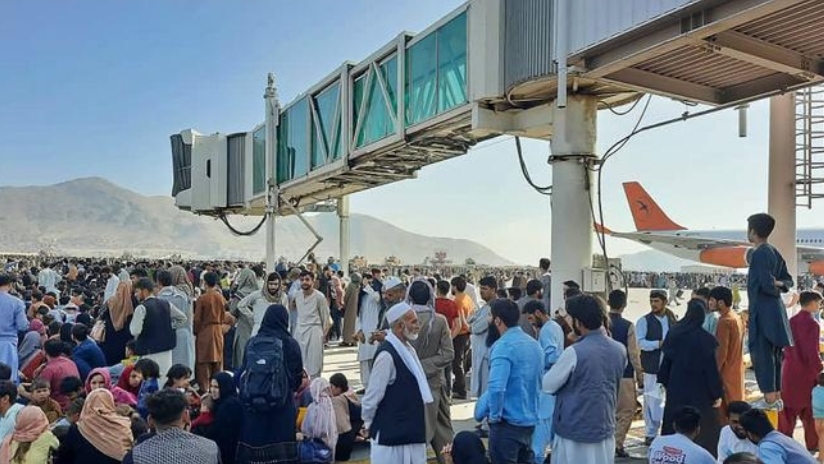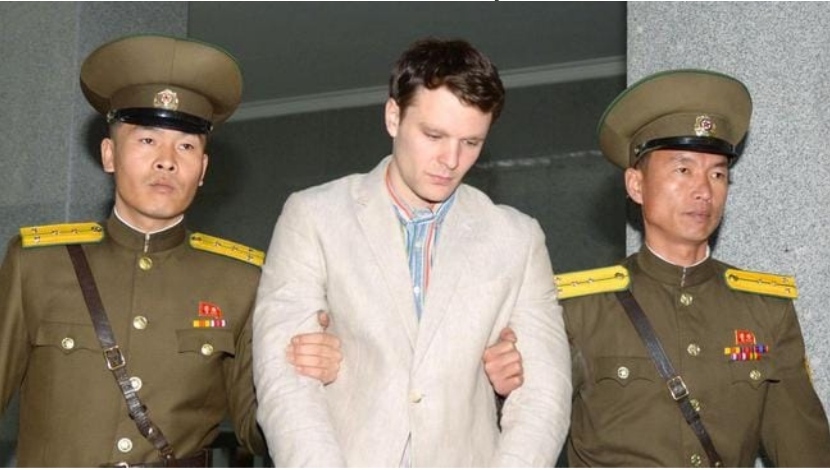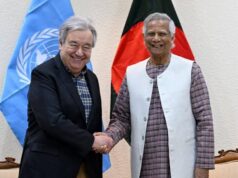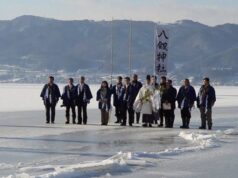World of dark tourism where thrill seekers risk death in dangerous countries

A traveller is stuck in Kabul along with other ‘dark tourists’ who travel the world and risk their lives while seeking thrills in the world’s most dangerous countries.
Dark tourists seeking thrills in terrifying war zones risk being locked up in hellhole jails accused of espionage
So-called “danger travel” has been thrust back into the spotlight after British national Miles Routledge, 22, claimed online that he is stuck in war-torn Kabul as ruthless Taliban militants seized the Afghan capital.
Miles alleged he has been abandoned by the British Embassy and told worried friends online that he’s in a “bit of a pickle”.
He claims he is now hiding out in a United Nations safe house in Kabul after apparently trying to flee the city several times, according to The Spectator.
This comes hours after the Taliban took control of Jalalabad and means they now have seized every city in the country.
On Sunday, Afghan President Ashraf Ghani fled after the jihadis rampaged through Kabul and stormed his palace.
‘Prepared for death’
Physics student Miles, originally from Birmingham, said he picked the location for his trip after googling “the most dangerous cities to visit”.
He has been documenting his trip on 4chan, the message board site, and on Twitch, the livestreaming platform.
Miles told his followers: “I was fully prepared for death, I accepted it.

Miles Routledge is apparently stranded in Kabul as the Taliban took back control of the city
“This trip has been a test of God. I’m very religious so I believe I’ll be looked after.
“Before I left I wrote a letter to my friends saying that if I died, not to feel guilty, that I would die happy and religious and proud,” he said.
“I was under the impression that the country wouldn’t fall for another month, so I thought it was going to be fine.
“I’d seen videos on YouTube of people going. I thought maybe the worst case would be food poisoning.”
History of tourists getting in trouble
Yet Miles is not the first British tourist to naively travel to an international danger zone and find themselves in deep trouble.
In 2019, British vlogger Jolie King and her Aussie partner Mark Firkin were arrested in Iranian capital Tehran for flying a drone.

Jolie King was reportedly arrested and jailed in Iran in 2019 for flying a drone
Ms King was held in Evin Prison in the same wing as Nazanin Zaghari-Ratcliffe, a Brit charity worker accused of being a spy.
According to former inmates there, prisoners have been electrocuted and raped by guards as well as being beaten so hard they vomit blood.
Luckily for Jolie, she and her boyfriend were eventually released with the couple saying they were “happy and relieved” to be back in Australia.
Into the danger zone
But why do Westerners want to visit war zones and other dangerous places?
British dark tourist Andy McGinlay, 40, has travelled to more than 100 countries around the world, and has developed a taste for extreme holidays.
Between 2010 and 2015, he visited Syria, Iraq, Iran, Afghanistan and North Korea – and feared he’d be kidnapped more than once.
He told Sun Online about the motivations behind his adventures – which have seen him threatened with knives and taken against his will by fake tour guides.

Afghans crowding the tarmac at Kabul Airport wanting to flee the country.
Mr McGinlay said: “The first one was Yemen in 2004 and I got a taste for the thrill of it.
“In the beginning I got an adrenaline rush, absolutely.
“These days the feeling is what I call ‘hyper alert’ – where you become acutely aware of movements and sounds around you.
“Your guard is way up. I guess it’s the state in between fight or flight mode.”
Glasgow-born Mr McGinlay, who runs a travel-based YouTube channel, said he was inspired by Lonely Planet co-founder Tony Wheeler who visited the pariah states listed by George Bush in his infamous ‘Axis of Evil’ speech following 9/11.
He said: “But my ultimate ambition is to visit every country in the world – which is also driving me to take risks.”
‘They were spying on me’
And Jolie King isn’t the only Brit to have a sinister experience in Iran – which executes more people per capita than any other country on Earth.
In 2012, Mr McGinlay believes he was spied on by Iranian security services during a trip to the northern city of Tabirz.
He arranged a guide, who was a local PhD student, to show him around and host him at his home for a few days.
However, when he left, travelling into northern Iraq overland, his Iranian chaperone was arrested for “consorting with a British foreigner”.
Mr McGinlay believes he must have been followed by police as he arrived in Iran by bus from Armenia and never spoke with immigration authorities or police while in the country.
He had obtained a visa from the Iranian embassy in Bangkok, Thailand, where he was working as a teacher.
‘They are so paranoid’
Mr McGinlay said: “They knew I was British and knew my identity. How did they join the dots?
“They are so paranoid, they interrogated him to find out if I was a spy.
“But what that means is that they must have been spying on us at the time which is incredible.
“They must have wondered or assumed that I was a spy because it’s very unusual for a British person to be travelling in Iran at that time and in that place. It’s not a very touristy place.”
Luckily, the guide was eventually released after he was able to prove that the Scottish backpacker’s visit was entirely innocent.
Other tourists have not been so fortunate.
In 2010, another British tourist Andrew Barber was accused of “spying” by Iran and spent 58 days in Evin Prison – the same hellish jail where Ms King was held.
It emerged that Andrew’s “crime” was taking a photograph of a sunrise which was near a power plant.
When police checked his belongings, they discovered that he had previously worked in Iraq – one of Iran’s bitter regional rivals – for logistics company DHL.
He claims he was refused access to the British embassy and thrown into a cell where he was left blindfolded for 26 days.
He said: “I had no furniture and almost no natural light. Only a bright fluorescent tube that stayed on 24/7, even when you were trying to sleep.
Arrested for taking a picture
“I was allowed out of my cell 10 minutes a day to use the toilet. I started to lose my mind after about seven days.”
Thankfully, the charges against Mr McGinlay were eventually dropped because there was no evidence against him and he was handed over to the British embassy.
“Danger travel”, viewed by many enthusiasts as a distinct offshoot of dark tourism, made headlines in 2016 when US tourist Otto Warmbier was jailed in North Korea for stealing a propaganda poster.
But despite being sentenced to 15 years hard labour, the 22-year-old was released the following year in a coma after suffering a “severe neurological injury” while in prison.
He died on June 19, 2017 as a result of his injuries.

Otto Warmbier was arrested in 2016 for taking a poster. He later died after being returned to the US in 2017 in a coma.
The loose definition of “dark tourism”, a phrase coined by two Scottish academics in the 1990s, is visiting a place which is known for death or disaster.
Many experts believe there is an important distinction between visiting historical sites such as Auschwitz and so-called “danger travel”.
Dr Peter Hohenhaus claims to be “probably the most widely travelled, dedicated dark tourist” in the world having visited more than 700 different sites including Nazi death camps and Chernobyl.
He told Sun Online: “I do not seek danger and have rarely found myself in risky situations, and if so that was quite independently of dark tourism and not planned as such, often having more to do with dodgy means of transport in countries such as Indonesia.
“It is unfortunately a very common misunderstanding of dark tourism that it is ‘danger tourism’ but for 99.99 per cent of it that is not actually the case.
“I know there are people who actively look for an adrenaline kick through danger tourism – for example by travelling to active war zones even, but I would not call that dark tourism.
“It’s something else and something I do not take part in or can even relate to much.”




